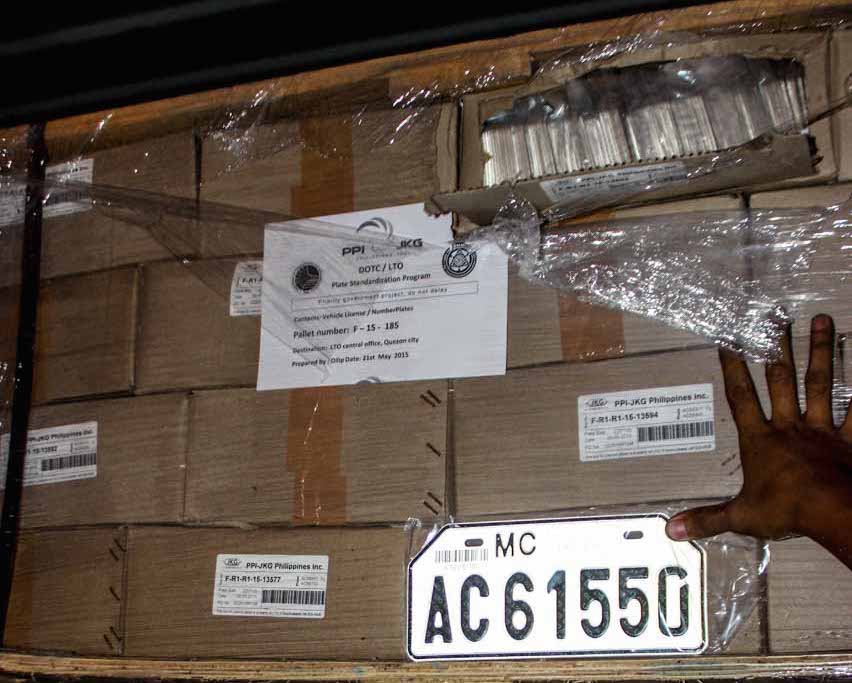
MANILA, Philippines – The Supreme Court (SC) on Tuesday, June 14, ordered the Land Transportation Office (LTO) not to release 700,000 vehicle license plates until the court resolves the issue on the supplier’s liability.
During its en banc session, the SC issued a temporary restraining order (TRO) – “effective immediately and until further orders from the Court” – on the LTO and its mother agency, the Department of Transportation and Communications (DOTC), and their representatives and agents.
The government is prevented “from releasing and/or distributing, or disposing in any manner of the 300,000 license plates for motor vehicles and 400,000 license plates for motorcycles which have been turned over by the Bureau of Customs last April 15, 2016.”
The TRO also covers license plates that the Bureau of Customs will turn over to the LTO in the future under the Motor Vehicle License Plate Standardization Program.
The High Court’s order stems from the case filed by Abakada Representative Jonathan dela Cruz and Parañaque 2nd District Representative Gustavo Tambunting against Executive Secretary Paquito Ochoa Jr, Budget Secretary Florencio Abad, DOTC Secretary Joseph Emilio Abaya, and National Treasurer Roberto Tan. (READ: Bidding out of car license plate contract illegal – Recto)
The 700,000 license plates were the ones confiscated by the customs bureau after supplier Power Plates Development Concepts Incorporation/J. Knieriem BV Goes (PPI-JKG) failed to pay taxes and customs duties.
The BOC turned them over to the LTO in April 2016. Earlier, the LTO announced that the license plates could be distributed in March if issues were settled.
The complainants, however, said the turnover should not have been done. In July 2015, the Commission on Audit issued a Notice of Disallowance against the contract between the LTO and the supplier. State auditors had required the PPI-JKG to return the P477.901 million in downpayment that the LTO made, and to turn the money over to the national treasury.
For more than a year motorists have been waiting for the license plates they already paid for. The unavailability of plates became the subject of a Senate investigation, especially after the DOTC implemented a “no plate, no travel” policy, effectively punishing vehicle owners for the agency’s fault. – Rappler.com